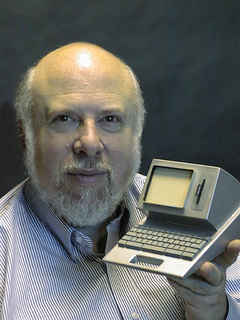A Quote by Matt Hancock
If technology can remove some of the labour-intensive tasks where the computer can do better than the human eye; that helps.
Related Quotes
One can think of any given axiom system as being like a computer with a certain limited amount of memory or processing power. One could switch to a computer with even more storage, but no matter how large an amount of storage space the computer has, there will still exist some tasks that are beyond its ability.
The beam in our own eye is harder to detect, although - or more accurately because - to detect it, and remove it, is vastly more important on elementary moral grounds, and commonly more important in terms of direct human consequences as well. Intellectuals have historically played a critical function in performing these tasks, and [Ivan] Illich is right to observe that claims to scientific expertise and special knowledge are often used as a device.
I am confident that we can do better than GUIs because the basic problem with them (and with the Linux and Unix interfaces) is that they ask a human being to do things that we know experimentally humans cannot do well. The question I asked myself is, given everything we know about how the human mind works, could we design a computer and computer software so that we can work with the least confusion and greatest efficiency?
You know, the technology was at the right place for us to build this world. The most difficult thing about doing The Croods was no doubt the building of the world. Every single thing in this film is organic. Organic things are tough. Very very labour intensive. And we have no man-made structures. You could argue that everything in this film is really an exterior. Even the interiors of the cave are exteriors. So building this world was the biggest thing of all, and the technology was there to do it.


































